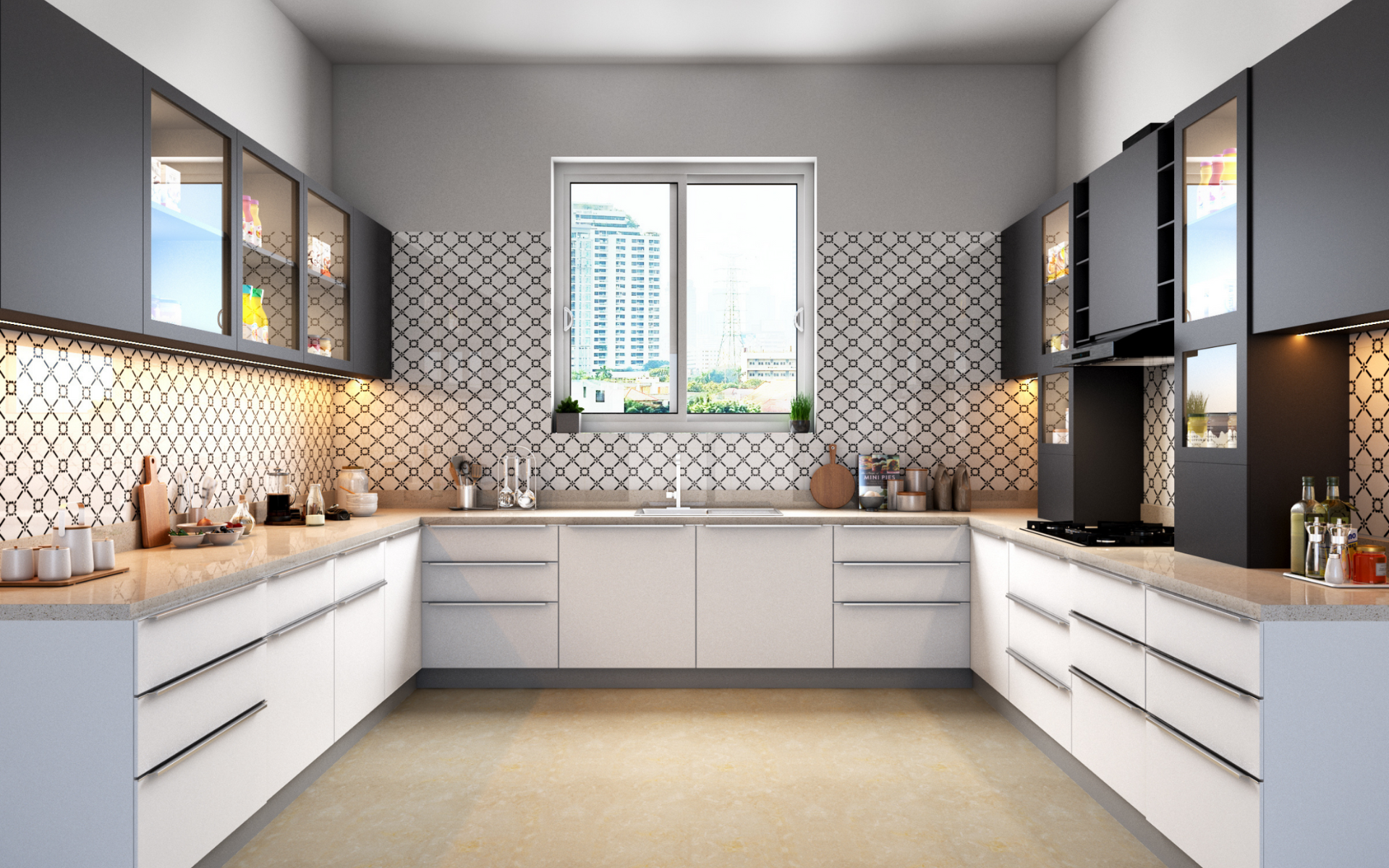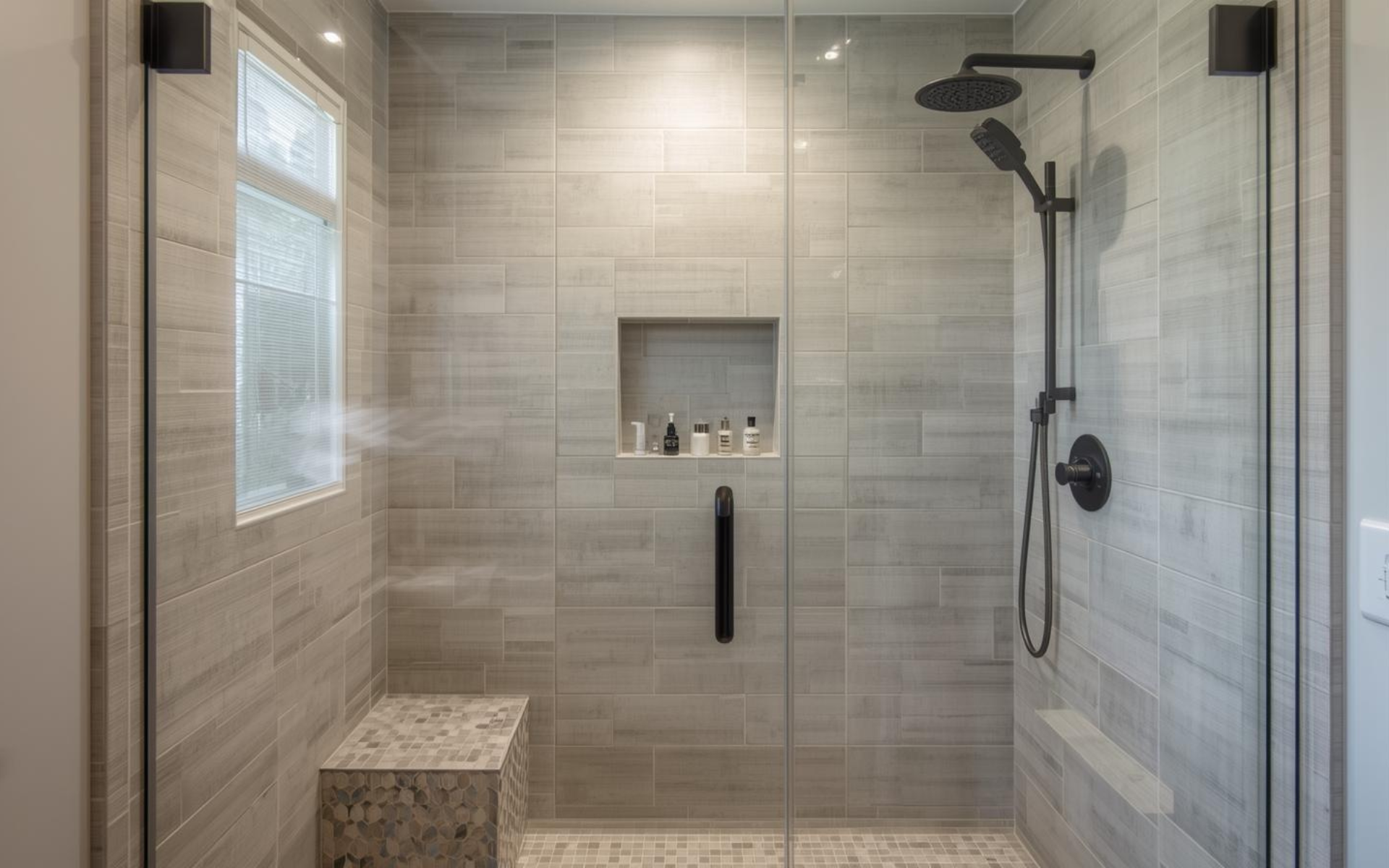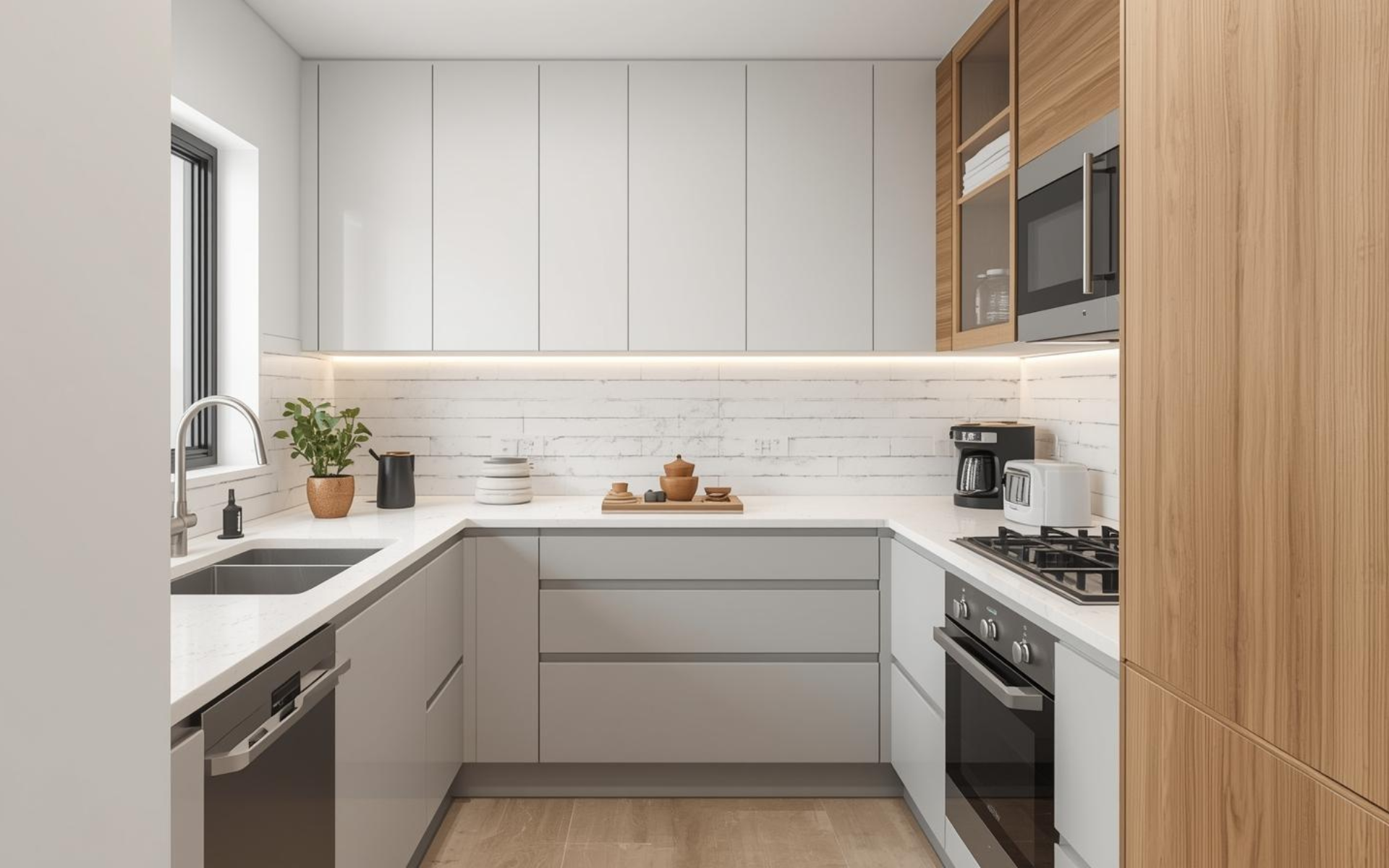Kitchen renovations represent one of the biggest investments homeowners make, and knowing kitchen remodeling cost upfront saves you from budget surprises down the road. Recent data shows homeowners spend between $14,592 and $41,595 for their kitchen projects. These figures vary dramatically based on your specific goals, from simple refreshes to complete transformations.
Having worked with countless homeowners as a trusted kitchen and bath remodeling company, we know that budget planning is often the first and most important step in any renovation journey. Every project is unique, and the final investment depends on factors like your current layout, desired upgrades, and local market conditions. Let’s break down everything you need to know about kitchen remodeling costs this year.
Table of Contents
How Much Does a Kitchen Remodel Cost?
The average kitchen remodel cost is around $27,013, though it ranges greatly, depending on materials, labor, and location. Research shows such wide variations because every kitchen situation is different. Some people start with decent bones and just need updates, while others are dealing with kitchens that haven’t been touched since the 1980s.
The main things affecting your kitchen remodeling cost include how extensive your project will be, your kitchen size and current condition, what materials you select, labor costs where you live, and whether you can work with your kitchen’s existing layout. Each of these factors plays a significant role in your final investment.
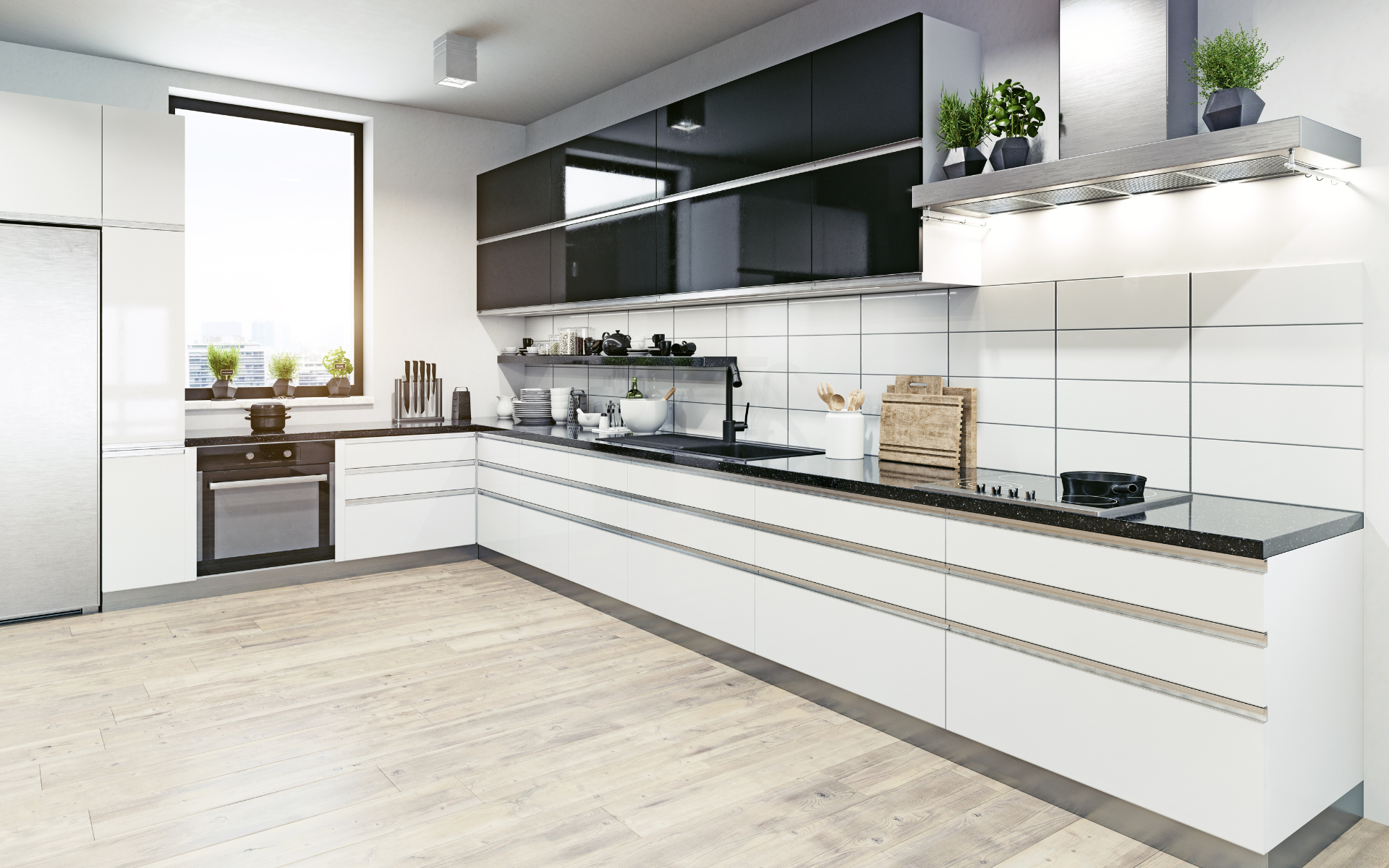
Cost Per Square Foot Breakdown
Homeowners can expect to spend between $75 to $250 per square foot when remodeling a kitchen. The per square foot calculation helps you estimate overall cost, but remember that smaller kitchens often cost more per square foot due to fixed expenses like permits and basic appliance needs.
What Is the Average Cost to Remodel a Kitchen?
Research indicates that the average remodel sits around $27,000, but your actual expenses could range from $10,000 for minor updates to $130,000+ for luxury complete renovations. Understanding the different remodel types helps you set realistic expectations for your kitchen remodeling project.
Minor Kitchen Remodel ($10,000 – $20,000)
A minor kitchen remodel might cost $10,000–$20,000 and focuses on cosmetic changes without major structural modifications. These projects refresh your space through painting walls for a fresh appearance, refacing existing cabinets or installing stock cabinets, upgrading one or two energy efficient appliances, and adding new countertops using budget-friendly materials. You’ll also keep the kitchen’s existing layout unchanged while updating simple lighting fixtures and installing a new kitchen sink and faucet.
Minor remodels offer excellent value for homeowners who want to refresh their space without the complexity of moving plumbing or electrical systems. These projects typically take 2-4 weeks to complete and provide immediate visual impact without major disruption to daily life.
Major Kitchen Remodel ($20,000 – $65,000)
Major renovations transform your space significantly while maintaining the basic footprint. These kitchen renovation projects include new energy-efficient appliances throughout the kitchen, semi-custom cabinetry with upgraded hardware, and premium countertop materials like quartz or granite. You’ll also invest in quality lighting fixtures, including task lighting, high-end kitchen sink and faucet combinations, upgraded flooring materials, and enhanced storage solutions.
Most homeowners find major remodels provide the best balance between cost and transformation. These projects usually take 6-8 weeks to complete and deliver substantial improvements in both function and aesthetics without the expense of major structural changes.
Complete Kitchen Remodel ($65,000 – $130,000+)
These upscale remodel projects involve moving plumbing and electrical systems, implementing custom designs and luxury materials throughout, and installing natural stone countertops like marble or high-end quartz. You’ll also invest in custom cabinetry with specialized storage, high-end smart appliances and built-ins, and major structural changes to layout. Premium flooring like hardwood or natural stone and sophisticated lighting design with ambient and task lighting complete the transformation.
Complete renovations often require 10-16 weeks and may need temporary kitchen arrangements while work progresses.
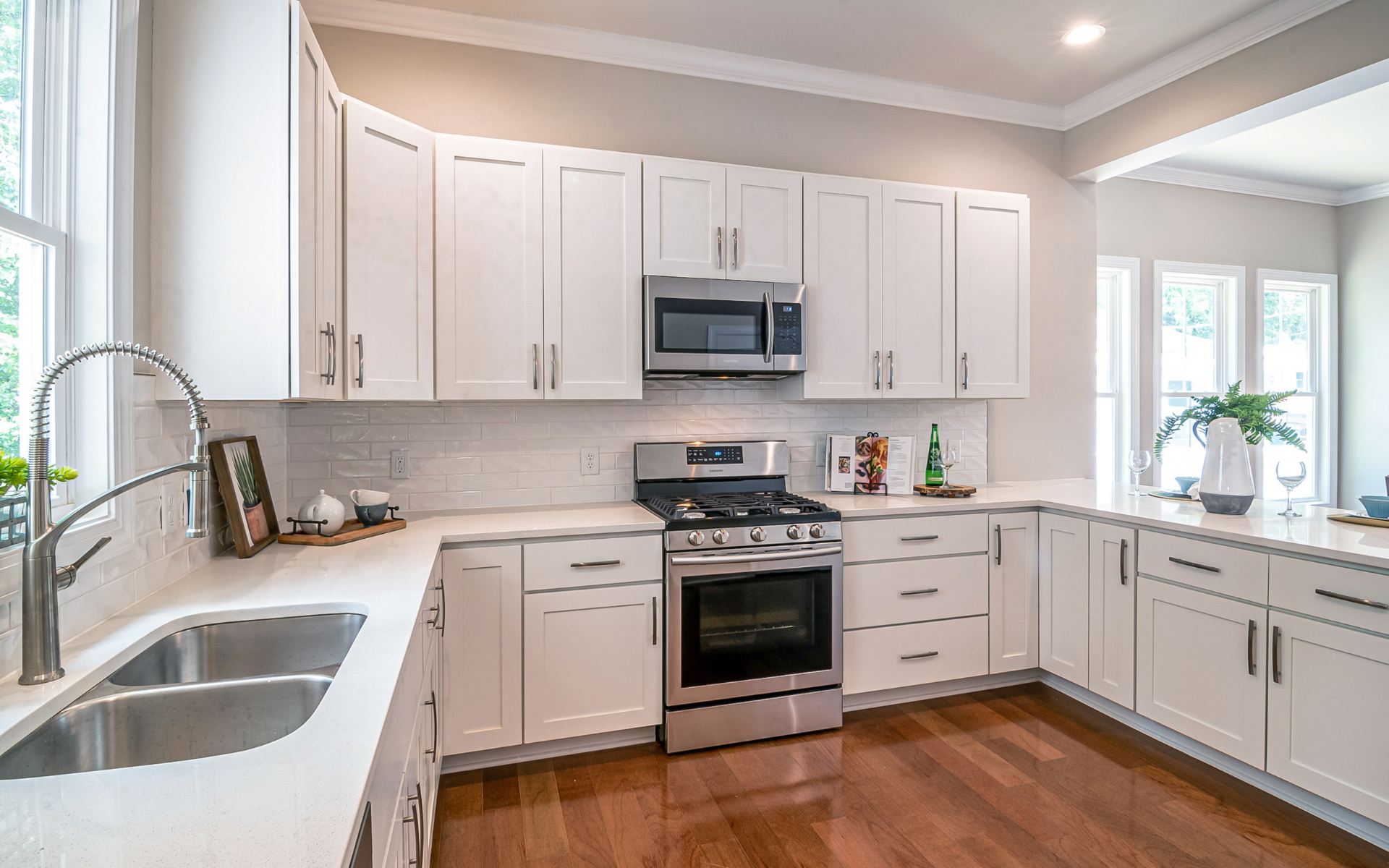
Kitchen Remodel Cost by Region
Location significantly impacts your total cost. Homeowners in the Northeast typically spend $10,800 to $40,400, while those in the Northwest face higher costs of $25,600 to $61,100. The Midwest offers more moderate pricing at $10,300 to $34,300, and the Southeast ranges from $12,000 to $32,200. Southwest homeowners spend $12,350 to $33,950, while the Rocky Mountains region costs $12,700 to $39,600.
Kitchen Remodel Cost in Washington DC
Washington DC represents one of the higher-cost markets for kitchen renovations. Homeowners in the DC metro area typically spend $15,000 to $28,000 for minor remodels, $28,000 to $75,000 for major renovations, and $75,000 to $150,000+ for complete transformations.
The higher costs reflect premium labor costs due to high demand for skilled contractors, strict building codes and permit requirements, higher material costs due to transportation and storage challenges, and a competitive market for quality contractors. Many DC homeowners find the investment worthwhile due to strong property values and high return on investment in the local market.
Kitchen Remodel Costs by Component
Angi’s data reveals that cabinets, flooring, and countertops account for close to 75% of kitchen remodel costs, making these decisions crucial to your overall investment. Understanding individual component pricing helps you allocate your budget effectively and make informed decisions about where to invest your money.
Kitchen Cabinets
New cabinetry represents the biggest expense in most kitchen remodeling projects. The cost of kitchen cabinets ranges from $2,000 to $28,000 or more, often consuming 35-40% of your total budget. This significant investment reflects the complexity of cabinet manufacturing, installation requirements, and the dramatic impact quality cabinetry has on your kitchen’s functionality and appearance.
Stock cabinets cost $100 to $300 per linear foot and offer pre-manufactured options in standard sizes with limited customization but the fastest installation timelines. These budget-friendly choices work well for cost-conscious homeowners who can work within standard dimensions. Semi-custom cabinets range from $300 to $650 per linear foot, providing more size and style options with some customization for specific needs, better quality materials and construction, and represent the popular choice for major remodels.
Custom cabinets command $500 to $1,200 per linear foot but deliver completely personalized designs, premium materials and craftsmanship, and a perfect fit for unusual spaces. While these require the longest lead times, they offer the highest quality and unlimited design possibilities.
Many homeowners choose to keep existing cabinets and simply reface them to save money. Cabinet refacing costs $4,000 to $10,000 and can dramatically update your kitchen’s appearance while maintaining functionality. This approach works particularly well when cabinet boxes remain structurally sound but door styles feel outdated.
Cabinet hardware costs range from under $100 for basic options to $10,000+ for premium finishes. Quality hardware can transform even budget cabinets into stunning focal points, making this an area where small investments yield significant visual returns.
Kitchen Countertops
Though the average cost range to install countertops is $1,870 to $4,400, you may pay up to $10,000 or more for the materials and labor required to install certain options.
Popular material costs per square foot:
- Laminate: $8–$35 (most budget-friendly)
- Quartz: $15–$70 (durable and low-maintenance)
- Granite: $10–$140 (natural beauty with variation)
- Marble: $15–$190 (luxury choice)
Laminate remains the most budget-friendly choice, offering endless design possibilities including realistic stone and wood patterns. Modern laminate has come a long way, providing durability and easy maintenance for busy families.
Quartz delivers exceptional durability and low maintenance requirements. This engineered stone resists stains, scratches, and bacteria without requiring sealing. Its consistent patterns and wide color selection make it ideal for contemporary kitchen designs.
Granite brings natural beauty with unique veining and color variations that make each slab one-of-a-kind. This natural stone adds significant value to homes and works beautifully in both traditional and modern kitchens.
Marble represents the pinnacle of luxury countertop materials. Its timeless elegance and cool surface make it perfect for baking enthusiasts, though it requires more maintenance than other natural stone options.
Appliances
Specific appliances vary widely in price, from budget-friendly options under $500 to professional-grade units costing $5,000+. Most homeowners pay installation fees ranging from $125 to $300 per appliance, though complex installations may cost more.
Refrigerators represent a major investment, with standard models costing $800 to $2,500, counter-depth units running $1,500 to $4,000, and professional-style options reaching $3,000 to $8,000+. Cooking appliances offer tremendous variety, from standard ranges costing $600 to $2,000 to professional gas ranges reaching $2,500 to $6,000+. Dishwashers range from $400 to $2,500, while ventilation systems cost $300 to $3,000+.
Energy-efficient appliances often qualify for utility rebates and provide long-term savings through reduced energy consumption, making them smart investments that pay dividends over time.
Flooring
Depending on square footage, the cost to install a new floor ranges from $1,000 to $4,000. Your kitchen floor choice impacts both daily comfort and long-term durability while setting the foundation for your overall design aesthetic.
Budget-friendly options include vinyl tile at less than $1 per square foot, laminate flooring at $3 to $10 per square foot, and luxury vinyl plank at $3 to $7 per square foot. Premium choices encompass hardwood at $6 to $22 per square foot, natural stone at $6 to $20 per square foot, and ceramic tile at $4 to $40 per square foot.
Professional installation typically adds $2 to $8 per square foot to material costs, depending on subfloor preparation requirements and installation complexity.
Backsplash
The cost of installing a new backsplash ranges from $500 to $1,700 or $15 to $40 per square foot. This relatively small investment creates a dramatic visual impact and protects walls from cooking splashes. Subway tile costs $15 to $25 per square foot, natural stone runs $20 to $45 per square foot, glass tile costs $25 to $40 per square foot, and metal tiles run $20 to $35 per square foot.
Plumbing
It costs an average of $260 to install a new faucet and $420 to install a new sink. However, moving plumbing lines adds a significant expense that can dramatically impact your budget. Adding new pipes or completely repiping your space costs about $7,500, ranging from $1,500 to $15,000 depending on complexity.
Electrical Work
Electrical projects range from simple outlet additions costing $75 to $485 to major electrical panel upgrades running $520 to $2,000. Lighting projects start around $500 but can exceed $2,000 for comprehensive ambient and task lighting installations.
Wall and Ceiling Work
Demolition and wall renovations vary widely based on scope. A fresh coat of paint for a 150-250 square foot kitchen costs about $900. Adding features like tongue-and-groove pine ceilings costs $1,350 to $1,800 in a 150-square-foot room.
Additional Features
Building a pantry ranges from $1,100 to $2,900, while moving gas lines costs $375 to $750. These optional upgrades can enhance functionality but require careful budget consideration.
Labor Costs and Professional Services
For every $10,000 you plan to spend, you should account for $2,500 in labor fees. This 25% guideline helps ensure adequate budget allocation for professional services that ensure quality results and code compliance.
General contractors charge 10% to 20% of project costs and provide project management, coordination, permit acquisition, inspections, quality control, and timeline management. Their expertise proves invaluable for complex projects involving multiple trades and strict scheduling requirements.
Interior designers cost $50 to $200 per hour or $5 to $15 per square foot and offer space planning, design development, material selection, coordination, and custom design solutions. Their involvement often prevents costly mistakes and ensures cohesive results.
Specialized trades include plumbers at $45 to $200 per hour, electricians at $50 to $100 per hour, tile installers at $35 to $85 per hour, and cabinet installers at $40 to $100 per hour. Building permits cost $460 to $2,770 on average and ensure code compliance, safety, and protect your investment and resale value.
Kitchen Remodel vs. Renovation vs. Expansion
Understanding the distinctions between these terms helps you communicate effectively with contractors and set appropriate expectations for your project.
A remodel involves transforming your kitchen’s structure and could include tearing down walls, moving plumbing, upgrading electrical systems, changing the kitchen layout, moving appliances around, and replacing cabinets, flooring, and counters. These projects focus on significant updates to look and functionality, with costs ranging from moderate to high.
A renovation focuses on restoring your kitchen to look new through more straightforward projects. Kitchen renovations might involve repairing appliances and flooring, refinishing cabinets, and replacing kitchen faucets. The layout stays the same, with focus on repairs and replacements, keeping costs low to moderate.
An expansion refers to increasing your kitchen’s size by tearing down walls and reframing the room. Creating an open floor plan that combines the kitchen and dining room represents a typical expansion project. While not as involved as complete remodels, expansions require intensive structural changes and carry moderate to high costs.
DIY vs. Professional Installation
Opting to DIY some kitchen remodeling projects can offset labor costs, which often run between $3,000 and $6,000 or 25% of the total kitchen remodel budget. Projects like installing a backsplash, replacing a garbage disposal, and painting walls might be tasks you can handle yourself.
Since cabinets are the biggest cost in a kitchen remodeling project, you can cut costs by refinishing your existing cabinetry. Advanced DIYers may be able to install flooring, countertops, and cabinets with proper preparation and tools.
However, hazardous or heavy-duty projects like moving heavy natural stone countertops or rewiring gas lines are better left to professionals. Always leave potentially dangerous DIY projects involving plumbing and electrical work to licensed pros who have the right tools, skills, and knowledge to get the job done safely.
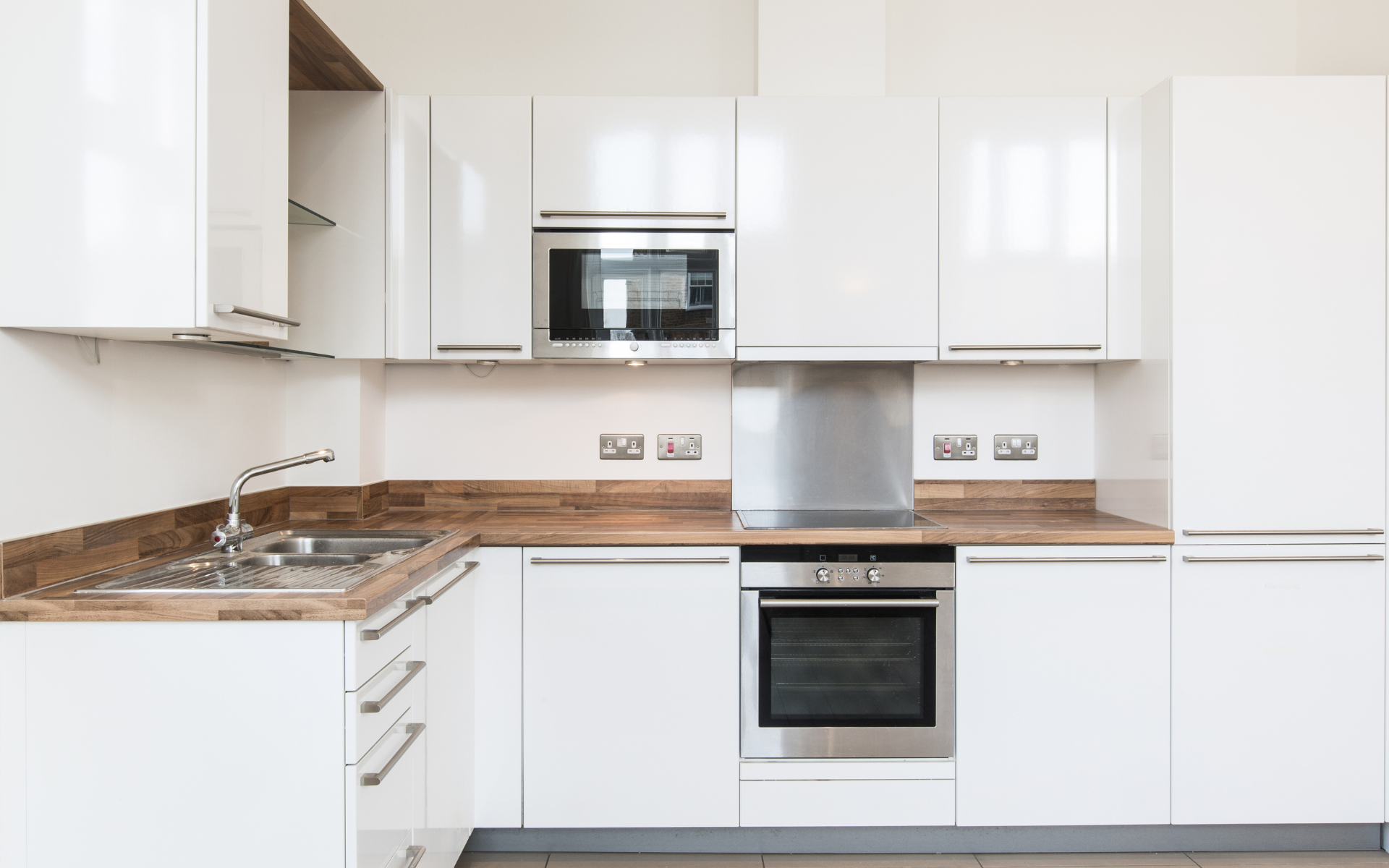
Ways to Save Money on Kitchen Renovations
Smart planning helps you create your dream kitchen without overspending. Keeping your kitchen’s existing layout avoids moving plumbing and electrical systems, which can save thousands in labor fees. Working within your current footprint allows you to focus your budget on finishes and appliances rather than expensive infrastructure changes.
Maximizing existing cabinetry offers significant savings opportunities. Paint cabinets for $300 to $1,000 versus $8,000+ for replacements. Replace cabinet doors only for $2,000 to $6,000, upgrade hardware for $200 to $2,000, or add crown molding for $500 to $1,500.
Shopping smart for appliances includes looking for floor models with minor cosmetic damage, buying during major sales events, considering slightly used or refurbished professional units, and bundling purchases for contractor discounts. Timing your project strategically during slower periods like late fall and winter can also yield better rates from contractors.
Common Kitchen Remodel Mistakes to Avoid
Underestimating your budget leads to difficult mid-project decisions. Set aside 10-20% for unexpected issues like outdated electrical, plumbing problems behind walls, structural issues requiring additional support, and material price increases during long projects.
Going for the lowest bid without research often costs more long term. Quality contractors may cost more upfront but save money through proper installation, better project management, established supplier relationships, and proper insurance coverage.
Poor planning and material coordination cause expensive delays. Order materials well before needed dates, coordinate delivery schedules with contractors, have backup options for discontinued items, and understand lead times for custom elements.
Neglecting infrastructure needs creates bigger problems later. Address electrical capacity for new appliances, adequate ventilation for cooking equipment, proper insulation and air sealing, and water damage or mold remediation during renovation when walls are already open.
Not researching in advance can lead to poor decisions. Before scheduling contractor visits, research your vision, collect favorite kitchen design trends, get realistic about budget constraints, and brush up on common remodeling terms to speak the same language as professionals.
Materials arriving late can derail timelines. While contractors handle heavy-duty materials like marble slabs and cabinetry, many ask homeowners to purchase smaller items like tiles, handles, and appliances. Buy these upfront at project start to avoid delays.
Not planning where you’ll cook or eat during renovation causes unnecessary stress and expense. Consider a temporary kitchen area with a mini fridge, a stovetop, and basic utensils to offset takeout costs during the weeks when your kitchen remains out of commission.
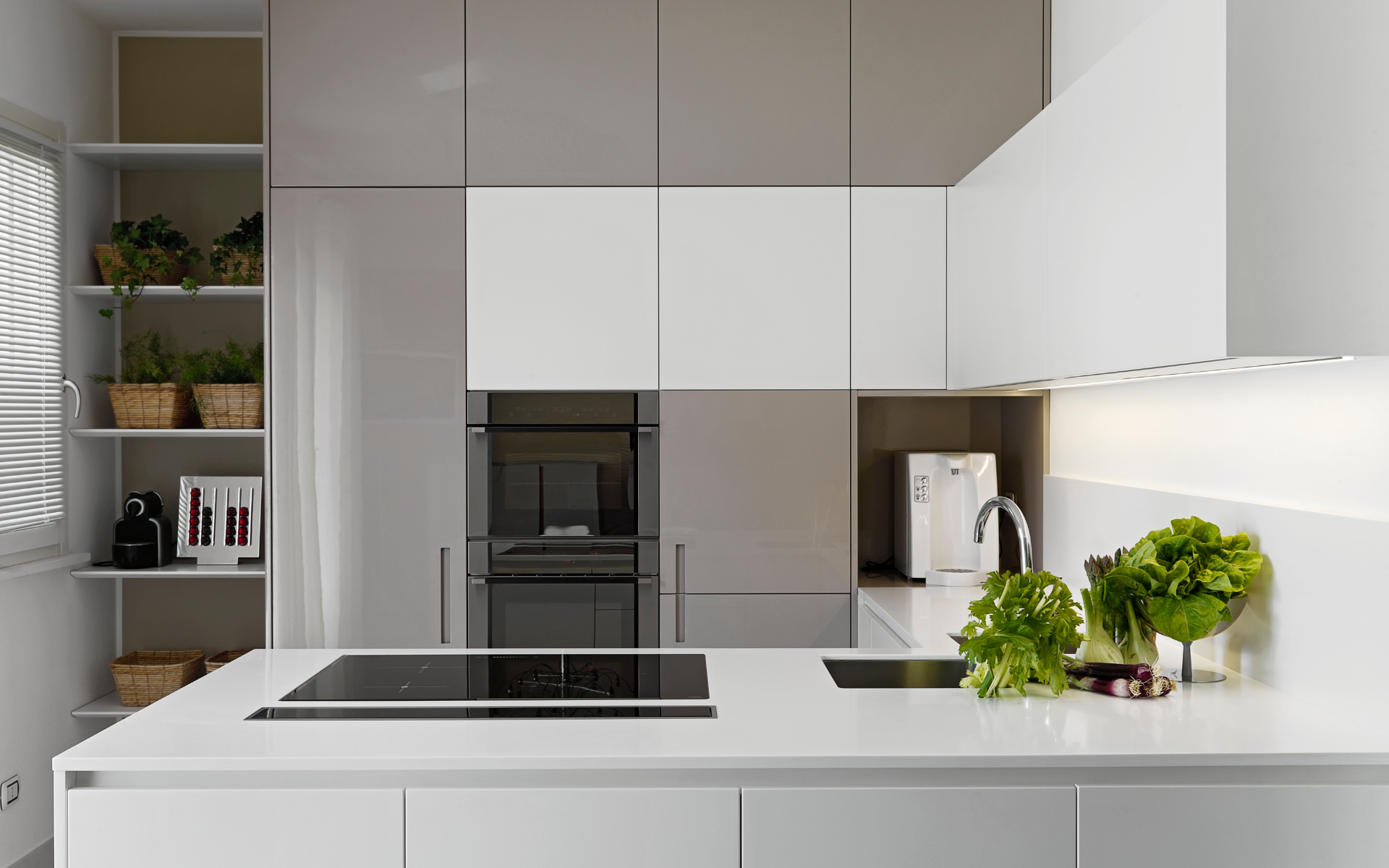
Timeline and Project Management
Kitchen remodels take six to 10 weeks on average, according to Angi’s research, but this varies significantly based on contractors’ schedules and material availability. Factor in about four weeks of planning time ahead of construction to ensure smooth project flow and satisfactory results.
Minor remodels typically require 2-4 weeks with minimal daily disruption, while major remodels need 6-10 weeks and require temporary kitchen arrangements. Complete remodels take 10-16 weeks, involve full kitchen shutdown, and require complex coordination of structural changes plus extensive permitting and inspections.
Including planning stages, demolition, installations, and cleanup, the full remodel timeline can extend up to four months for comprehensive projects.
Storage and Moving Costs
If you aren’t replacing appliances, expect to spend $90 to $250 per month for portable storage or $120 to $280 per month for storage units during demolition and construction. Hiring movers costs around $25 to $50 per mover per hour, or you might pay per appliance, with refrigerator moves costing about $150 to $250.
Return on Investment and Home Value
Kitchen remodels have a return on investment (ROI) of about 70% to 80%. Both minor and major kitchen remodels can increase your home’s value significantly, making this renovation one of the smartest investments for homeowners seeking to improve their living experience while building equity.
Quality over luxury often provides better returns than ultra-high-end installations. Functional improvements like better storage, workflow, and lighting add lasting value that appeals to future buyers. Energy efficiency through modern appliances and fixtures attracts today’s environmentally conscious buyers. Timeless design holds value better than trendy choices that may look dated quickly.
Quality kitchen renovations also help homes sell faster, especially when they feature modern appliances, attractive lighting fixtures, and functional layouts that appeal to today’s buyers who want move-in ready homes.
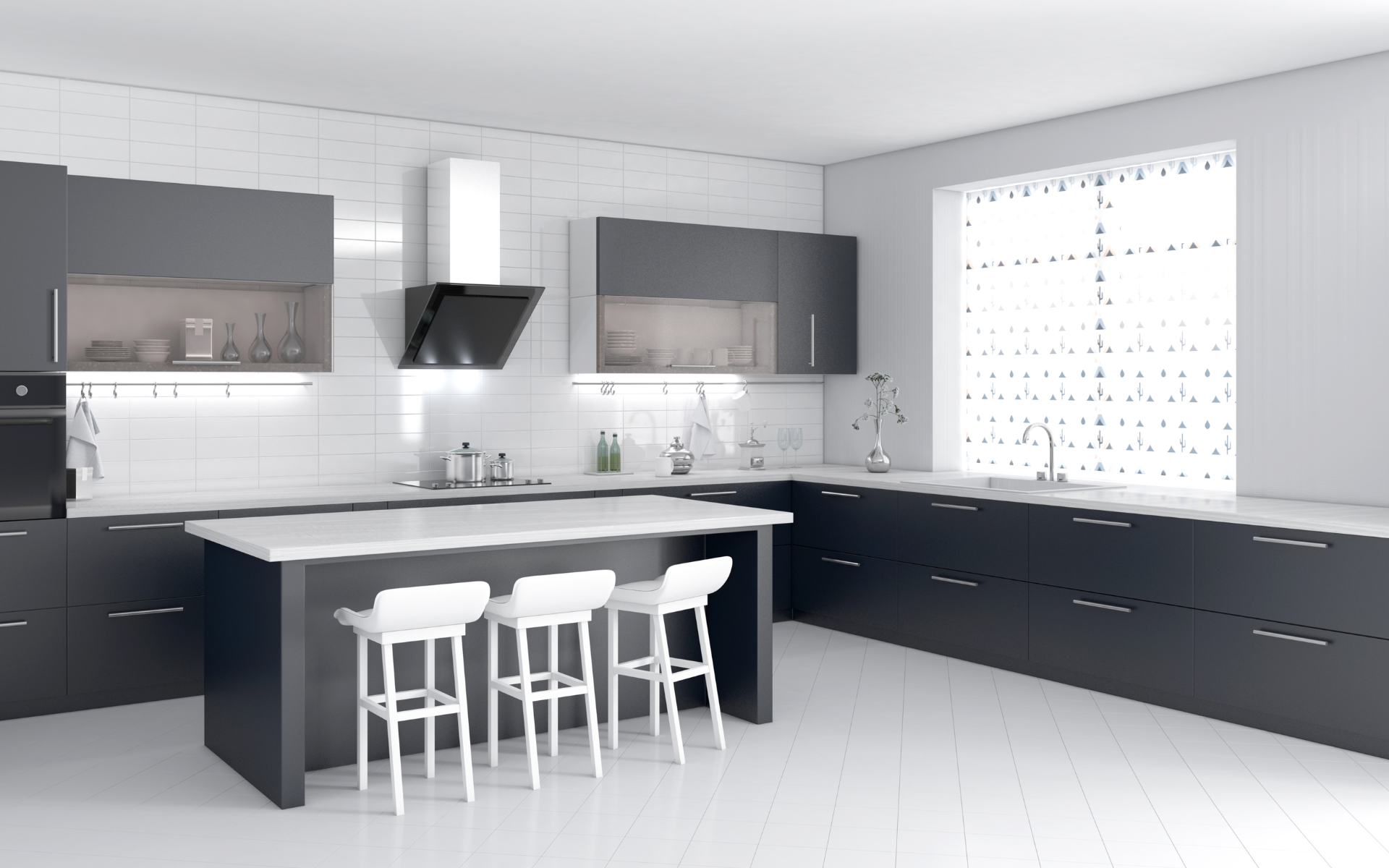
Planning Your Kitchen Remodeling Budget
Start by determining your total budget, then allocate funds based on priorities. Kitchen cabinets and installation typically consume 35-40% of budgets, while labor costs across all trades account for 20-25%. Appliances and installation require 15-20%, countertops and installation need 10-15%, and flooring materials and installation take 5-10%. Lighting fixtures, electrical work, permits, design, and miscellaneous costs round out the remaining 10%.
Remember to set aside 10-20% for unexpected issues commonly found in older homes, including outdated wiring, plumbing problems, or structural modifications that become apparent once work begins.
Creating your realistic budget requires assessing needs versus wants, researching thoroughly, and planning for the long term. Must-have improvements for function and safety take priority over nice-to-have upgrades that can wait. Dream features that stretch your budget require careful consideration of their true value to your daily life.
Get multiple quotes from potential contractors, visit showrooms to understand material costs, and factor in all associated expenses like permits and temporary kitchen setup. Consider how long you’ll stay in the home, balance personal preferences with resale considerations, and invest in quality for items you’ll use daily.
Homeowners should be prepared to spend between 5% and 10% of their home’s value on any substantial renovation requiring expert general contractor services. This guideline helps ensure your investment remains proportional to your property’s overall value.
Making the Most of Your Kitchen Remodel
A well-planned kitchen remodel balances your current needs with future resale value. Focus on timeless design elements and quality materials that will serve you well for years to come.
Kitchen remodeling costs in 2025 reflect both material price increases and growing demand for quality craftsmanship. However, the investment typically pays dividends in daily enjoyment and home value. Start with a clear budget, prioritize your must-have features, and work with experienced professionals to bring your dream kitchen to life.
Ready to start your kitchen transformation? Contact our team at Dupont Design Center to discuss your vision and get an accurate estimate for your specific project needs.

